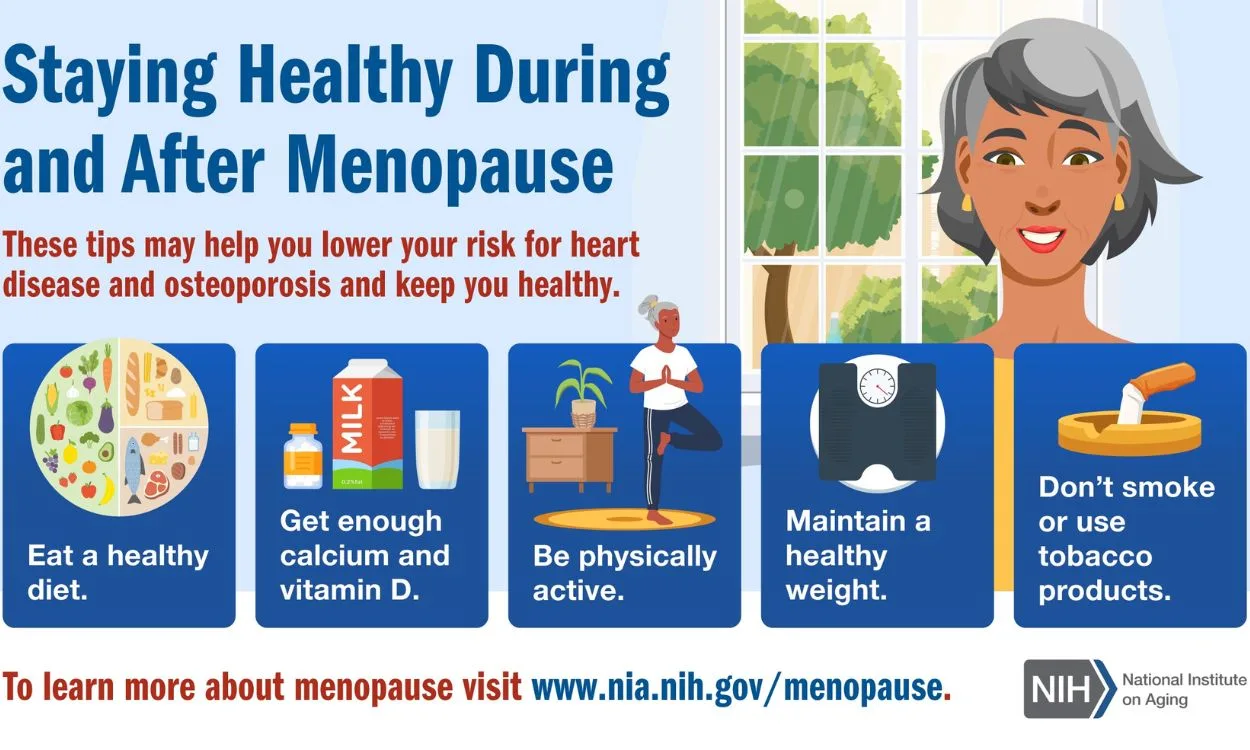How can I manage menopause symptoms to protect my heart?
Menopause is a natural phase in a woman’s life when her menstrual cycles cease, typically occurring between the ages of 45 and 55. During this period, hormonal changes take place in the body, leading to various physical and emotional symptoms. It’s important for women to understand and manage these symptoms, as they can impact their overall health, including heart health. In this article, we will explore effective strategies to manage menopause symptoms and protect the heart.
Understanding Menopause and Its Impact on the Heart
- What is menopause? Menopause is a normal biological process that marks the end of a woman’s reproductive years. It occurs when the ovaries stop producing eggs and the levels of hormones like estrogen and progesterone decline.
- Hormonal changes and the heart: Estrogen plays a crucial role in protecting cardiovascular health. As estrogen levels decline during menopause, women become more susceptible to heart disease. This hormonal shift can lead to an increase in cholesterol levels, higher blood pressure, and changes in blood vessel function.
Managing Menopause Symptoms
- Hot flashes and night sweats: These are common symptoms experienced by menopausal women. To manage them:
- Dress in layers to easily remove clothing when experiencing a hot flash.
- Keep the bedroom cool and use breathable bedding to reduce night sweats.
- Avoid triggers such as spicy foods, caffeine, and alcohol.
- Mood swings and emotional changes: Menopause can cause mood swings, anxiety, and depression. To manage these symptoms:
- Engage in regular physical activity, which can boost mood and reduce anxiety.
- Practice stress-reducing techniques like deep breathing, meditation, or yoga.
- Seek support from friends, family, or a therapist if needed.
- Sleep disturbances: Many menopausal women experience difficulty falling asleep or staying asleep. To improve sleep quality:
- Establish a bedtime routine and stick to a consistent sleep schedule.
- Create a sleep-friendly environment by keeping the bedroom dark, quiet, and cool.
- Limit screen time before bed and avoid consuming caffeine or heavy meals close to bedtime.
- Weight management: Hormonal changes during menopause can contribute to weight gain. To manage weight:
- Eat a balanced diet consisting of whole grains, lean proteins, fruits, and vegetables.
- Practice portion control and be mindful of calorie intake.
- Engage in regular exercise, including aerobic activities and strength training.
Protecting Heart Health During Menopause
- Eat a heart-healthy diet: Opt for foods that promote heart health, such as:
- Fatty fish rich in omega-3 fatty acids (e.g., salmon, mackerel, sardines).
- Fiber-rich foods like whole grains, fruits, vegetables, and legumes.
- Nuts and seeds, which contain heart-healthy fats.
- Exercise regularly: Engaging in regular physical activity can help protect the heart. Aim for:
- At least 150 minutes of moderate-intensity aerobic exercise per week.
- Strength training exercises to maintain muscle mass and bone density.
- Manage stress: Chronic stress can have negative effects on heart health. To manage stress:
- Practice stress-reducing techniques like deep breathing, meditation, or yoga.
- Engage in activities that bring joy and relaxation, such as hobbies or spending time in nature.
- Quit smoking: Smoking is a significant risk factor for heart disease. If you smoke, seek support to quit smoking and improve your heart health.
Fitpaa: Your Companion in Achieving Heart Health and Overall Well-being
If you’re looking for personalized support and guidance to manage menopause symptoms and protect your heart, consider downloading the Fitpaa app. Fitpaa offers a comprehensive approach to health and fitness, with features designed to meet your specific needs. With Fitpaa, you can:
- Access expert guidance from fitness coaches, nutritionists, and doctors.
- Receive a personalized Fitpaa Capsule based on your health goals, lifestyle, and eating habits.
- Benefit from state-of-the-art technology for metabolism monitoring and management.
- Follow a customized fitness plan, including medical therapy, exercise therapy, nutrition therapy, and cognitive behavior therapy.
Fitpaa’s real-time guidance technology keeps you motivated and inspired throughout the day, helping you achieve your health and fitness goals with guaranteed results. To experience the benefits of Fitpaa and embark on your journey towards optimal health, download the Fitpaa app today.
Remember, menopause is a natural phase of life, and with the right strategies and support, you can effectively manage symptoms and protect your heart. Take proactive steps towards your well-being, and embrace this new chapter with confidence and vitality.
Note: Fitpaa is a health and fitness app that offers personalized support and guidance. While it can complement and enhance your efforts to manage menopause symptoms and protect your heart, it’s important to consult with your healthcare provider for any specific medical advice or concerns.









